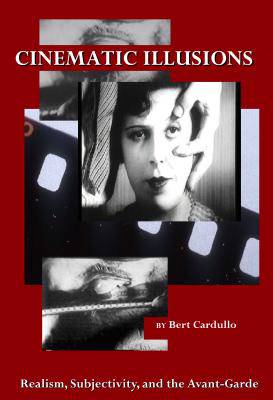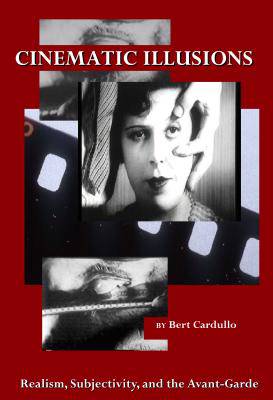
- Afhalen na 1 uur in een winkel met voorraad
- Gratis thuislevering in België vanaf € 30
- Ruim aanbod met 7 miljoen producten
- Afhalen na 1 uur in een winkel met voorraad
- Gratis thuislevering in België vanaf € 30
- Ruim aanbod met 7 miljoen producten
Zoeken
€ 42,45
+ 84 punten
Omschrijving
Cinematic Illusions: Realism, Subjectivity, and the Avant-Garde is a collection of twelve essays arranged around the primordial subject of realism and anti-realism (the experimental or non-representational) in film. The book treats not only the issue of realism versus anti-realism in the cinema, but also a number of subjects related to this issue: sex; violence; the avant-garde; subjective response versus objective creation; and the New American Cinema versus Italian Neorealism and the French New Wave. In sum, Cinematic Illusions treats the subject of illusion from the point of view of the cinema's unsurpassed ability to create not only the illusion of reality, but also the reality of illusion on the silver screen. There are a number of books that treat this subject from an abstract or theoretical point of view. The virtue of Cinematic Illusions is that it treats the subject in actual filmic practice and in highly readable yet at the same time subtly expressive prose. In combination with the subjects listed above, moreover, this collection of essays treats such major film directors as Robert Bresson, Vittorio De Sica, and Michelangelo Antonioni--each of whom, in his own way, confronted the question of what constitutes realism in the cinema.
Specificaties
Betrokkenen
- Auteur(s):
- Uitgeverij:
Inhoud
- Aantal bladzijden:
- 210
- Taal:
- Engels
Eigenschappen
- Productcode (EAN):
- 9781443800242
- Verschijningsdatum:
- 1/01/2009
- Uitvoering:
- Paperback
- Formaat:
- Trade paperback (VS)
- Afmetingen:
- 147 mm x 208 mm
- Gewicht:
- 299 g

Alleen bij Standaard Boekhandel
+ 84 punten op je klantenkaart van Standaard Boekhandel
Beoordelingen
We publiceren alleen reviews die voldoen aan de voorwaarden voor reviews. Bekijk onze voorwaarden voor reviews.








